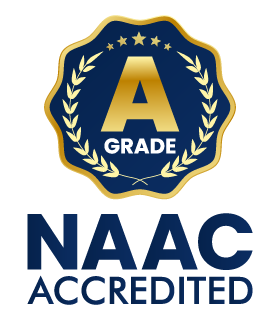About Department
Vision & Mission
Objectives
The Curriculum is designed to attain the following learning goals which students shall accomplish by the time of their graduation: Students will be industry ready professionals catering to the needs of IT services through in-house development of various IT applications and promote industry-academia interaction for bridging the gap between academic and industrial application in emerging IT Technologies. Students will become creative thinkers in IT field and will have multi dimensional thinking in human behaviour and many engineering skills, and hence they will participate in larger order tasks leading to sustainable development system and mutual happiness in society through novel IT solutions. The Department provides world class infrastructure with state of the art Computer labs equipped with latest software. The Department has always kept pace with the rapid advancements in the field with human values as priority.
Graduate Attributes
-
Academic excellence: Ability to identify key questions, research and pursue rigorous evidence-based arguments.
-
Critical Thinking and Effective communications: Analysis and evaluation of information to form a judgment about a subject or idea and ability to effectively communicate the same in a structured form.
-
Global Citizenship: Mutual understanding with others from diverse cultures, perspectives and backgrounds.
-
Life Long Learning: Open, curious, willing to investigate, and consider new knowledge and ways of thinking.
Program Educational Outcomes
- PEO 1: Core competency: Will develop the competency to pursue higher education or successful professional career with synergistic combination of the knowledge and skills of Information technology and allied technologies.
- PEO 2: Breadth of knowledge: Will show capabilities of independently designing, executing and interpreting small research problems by integrating the interdisciplinary knowledge of Information technology and other domains.
- PEO 3: Preparedness:Will reflect professional behaviour and have the potential to show preparedness to take any task or assignment in the capacity of a leader or team member in their chosen occupations or careers and communities.
- PEO 4: Professionalism: Will reflect values and responsibilities in the character to make them fit to work in a multidisciplinary team and to become socio-ethically responsible citizen.
- PEO 5: Learning environment: Will show attitude of self-learning abilities and keep themselves abreast with new development in all spheres of life.
Program Outcomes
- PO 1: Engineering knowledge: Apply the knowledge of mathematics, science, IT engineering fundamentals, and an IT engineering specialization to the solution of complex engineering problems for sustainable development.
- PO 2: Problem analysis: Analyze Identify, formulate, review research literature, and analyze complex engineering problems reaching substantiated conclusions using first principles of mathematics, natural sciences, and engineering sciences.
- PO 3: Design/development of solutions:Design solutions for complex IT engineering problems & design system components or/and processes that meet the specified needs with appropriate consideration for the public health & safety, cultural, societal and environmental considerations.
- PO 4: Conduct investigations of complex problems: Use research-based knowledge and research methods including design of experiments, analysis and interpretation of data, and synthesis of the information to provide valid conclusions.
- PO 5: Modern tool usage: Create, select, and apply appropriate techniques, resources, and modern engineering and IT tools including prediction and modeling to complex engineering activities with an understanding of the limitations.
- PO 6: The engineer and society:Apply reasoning informed by the contextual knowledge to assess societal, health, safety, legal and cultural issues and the consequent responsibilities relevant to the professional IT engineering practice.
- PO7: Environment and sustainability: Understand the impact of the professional engineering solutions in societal and environmental contexts, and demonstrate the knowledge of, and need for sustainable development.
- PO 8: Ethics: Apply ethical principles and commit to professional ethics and responsibilities and norms of the engineering practice.
- PO 9: Individual and team work:Function effectively as an individual, and as a member or leader in diverse teams, and in multidisciplinary settings leading to harmony between oneself and others.
- PO 10: Communication:Communicate effectively on complex engineering activities with the engineering community and with society at large, such as, being able to comprehend and write effective reports and design documentation, make effective presentations, and give and receive clear instructions.
- PO 11: Project management and finance: Demonstrate knowledge and understanding of the engineering and management principles and apply these to one’s own work, as a member and leader in a team, to manage projects and in multidisciplinary environments.
- PO 12: Lifelong learning: Recognize the need for, and have the preparation and ability to engage in independent and life-long learning in the broadest context of technological change.
Program Specific Outcomes
- PSO 1: Graduate will be able to apply computational techniques and software principles for designing of software systems.
- PSO 2: Graduate will be able to develop efficient and effective software systems using modern IT engineering techniques.
- PSO 3: Graduates will be able to become entrepreneur and to pursue career in IT industries.
- PSO 4: Deduce the possibilities and impression of Information technology revolutions for finding sustainable ethical solutions to existing problem.
- PSO 5: Be able to explore problems related to Information technology and provide effective solution through industry-academia interactions.
Faculty profile
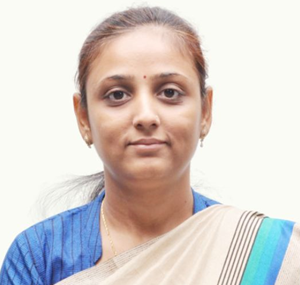
Scope
Career in IT is considered one of the most high-paying jobs and is full of opportunities; particularly when India’s prowess in information technology industry is recognized across the globe.
The pool of talented IT engineers working in IT companies of the USA and Canada shows that IT can take a person to higher levels. Numerous IT companies from India employ huge number of IT professionals in their Indian and overseas office.
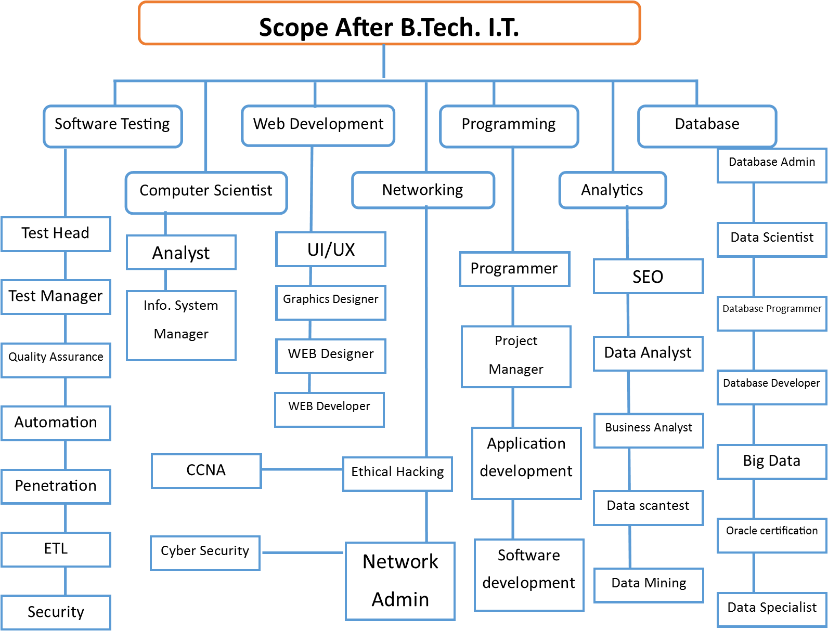
Research and Publication
| Sr. No | Name of Faculty | Publication | Title |
| 1 | Prof. Khyati M. Mewada | ijedr | A Survey on Latest Wireless Technologies |
| 2 | Prof. Khyati M. Mewada | ijcsi | Adaptive Neuro-Fuzzy Inference System (ANFIS) Based Software Evaluation |
| 3 | Prof. Amit B. Parmar | researchgate | Deliberative Study of Vanet Simulation Tools with Emphasis On Privacy and Security |
| 4 | Prof. Amit B. Parmar | ijedr | A Novel Approach to Reduce Routing Traffic in Vechicular Ad-hoc Network |
| 5 | Prof. Amit B. Parmar | library.atmiya.net | Implementing Current Traffic Signal Control Scenario in VANET Using Sumo |
| 6 | Prof. Amit B. Parmar | library.atmiya.net | Implementation of TRACI and Induction loop in Vehicular Ad-hoc Network |
| 7 | Prof. Amit B. Parmar | ijedr | Priority Based Traffic Control in Vehicular Ad-Hoc Network |
| 8 | Prof. Paras P. Kalariya | researchgate | Wireless Sensor Network : Analysis of Routing Protocols |
| 9 | Prof. Paras P. Kalariya | scholar.google.co.in | A survey of congestion control with cross layer approach using OLSR on MANET |
| 10 | Prof. Paras P. Kalariya | researchgate | Deliberative Study of Vanet Simulation Tools with Emphasis On Privacy and Security |
| 11 | Prof. Dimple R. Bharad | scholar.google.co.in | A survey of congestion control with cross layer approach using OLSR on MANET |
| 12 | Prof. Dimple R. Bharad | scholar.google.co.in | An Enhanced Congestion Control with bit error identification for TCP VEGAS |
| 13 | Prof. Dimple R. Bharad | scholar.google.co.in | A Survey on TCP Vegas Congestion Control mechanism over wireless link |
| 14 | Prof. Khyati P. Joshi | library.atmiya.net | Comparison of Distributed file system for Cloud with respect to Health-Care domain |
| 15 | Prof. Chetan R. Chauhan | ijcsi | A Survey on Moving Object Detection and Tracking methods |
| 16 | Prof. Chetan R. Chauhan | ijert | Implementation of Co-Occurring Phrase based Text Mining Technique for Analyzing Review Result of Product |
| 17 | Prof. Chetan R. Chauhan | ijsrd | Introduction to Geographical Information System, GIS data models, spatial data, spatial database, A Location based Secure Access Control Method for Geospatial Data |
| 18 | Prof. Chetan R. Chauhan | ijsrd | A Location based Secure Access Control Method for Geospatial Data using Fine Grained Security Access Method |
| 19 | Prof. Chetan R. Chauhan | ijsrd | Reducing Speckle Noise in Medical Ultrasound Image using Diffusion Filter Algorithm |
| 20 | Prof. Ratnmala R. Raval | research.ijcaonline.org | Comparative Study of Various Process Model in Software Development |
| 21 | Prof. Ratnmala R. Raval | research.ijcaonline.org | Improvements in Agile Model using Hybrid Theory for Software Development in Software Engineering |
| 22 | Prof. Ratnmala R. Raval | researchgate | ““IMPROVEMENTS IN AGILE MANIFESTO FOR SMALL SOFTWARE DEVELOPMENT INDUSTRIES”” |
| 23 | Prof. Darshan N Jani | IJSREM |
"Role of ER Modelling and Normalization in |
| 24 | Prof. Darshan N Jani | IJSREM |
"DATA MINING IN SOCIAL MEDIA" |
| 25 | Prof. Darshan N Jani | CPIM | "Zero Paper, Zero Waste: Digital Attendance Systems for Sustainable Higher Education Institutes" |
Event
| Sr. No. | Event Name | Event Date | Photo Gallery |
|---|---|---|---|
| 1 | EDC SEMINAR | 14-09-2018 | View |
| 2 | HACKING SESSION | 07-07-2018 | View |
| 3 | ANDROID SESSION | 07-07-2018 | View |
| 4 | PHP OSTC TEST | 16-04-2018 | View |
| 5 | WEB TECHNOLOGY QUIZ | 11-04-2018 | View |
| 6 | PYTHON OSTC TEST | 10-04-2018 | View |
| 7 | PROJECT FAIR | 10-04-2018 | View |
| 8 | C++ OSTC TEST | 10-04-2018 | View |
| 9 | EXPERT SESSION ON LARAVEL | 07-04-2018 | View |
| 10 | EXPERT SESSION ON BOOTSTRAP | 04-04-2018 | View |
| 11 | NATIONAL CREATIVITY APTITUDE TEST | 24-03-2018 | View |
| 12 | CAMPUS TO CORPORATE WORKSHOP | 22-03-2018 | View |
| 13 | EXPERT SESSION ON VALUE BASED EDUCATION | 22-03-2018 | View |
| 14 | PHPMYSQL WORKSHOP | 18-03-2018 | View |
| 15 | VISIT TO MUD HOUSE | 13-02-2018 | View |
| 16 | IOT SEMINAR BY TOPS | 10-02-2018 | View |
| 17 | WT HYBRID CLASS | 22-01-2018 | View |
| 18 | VISIT TO MENTALLY RETARDED HOME | 10-09-2017 | View |
Department Infrastructure
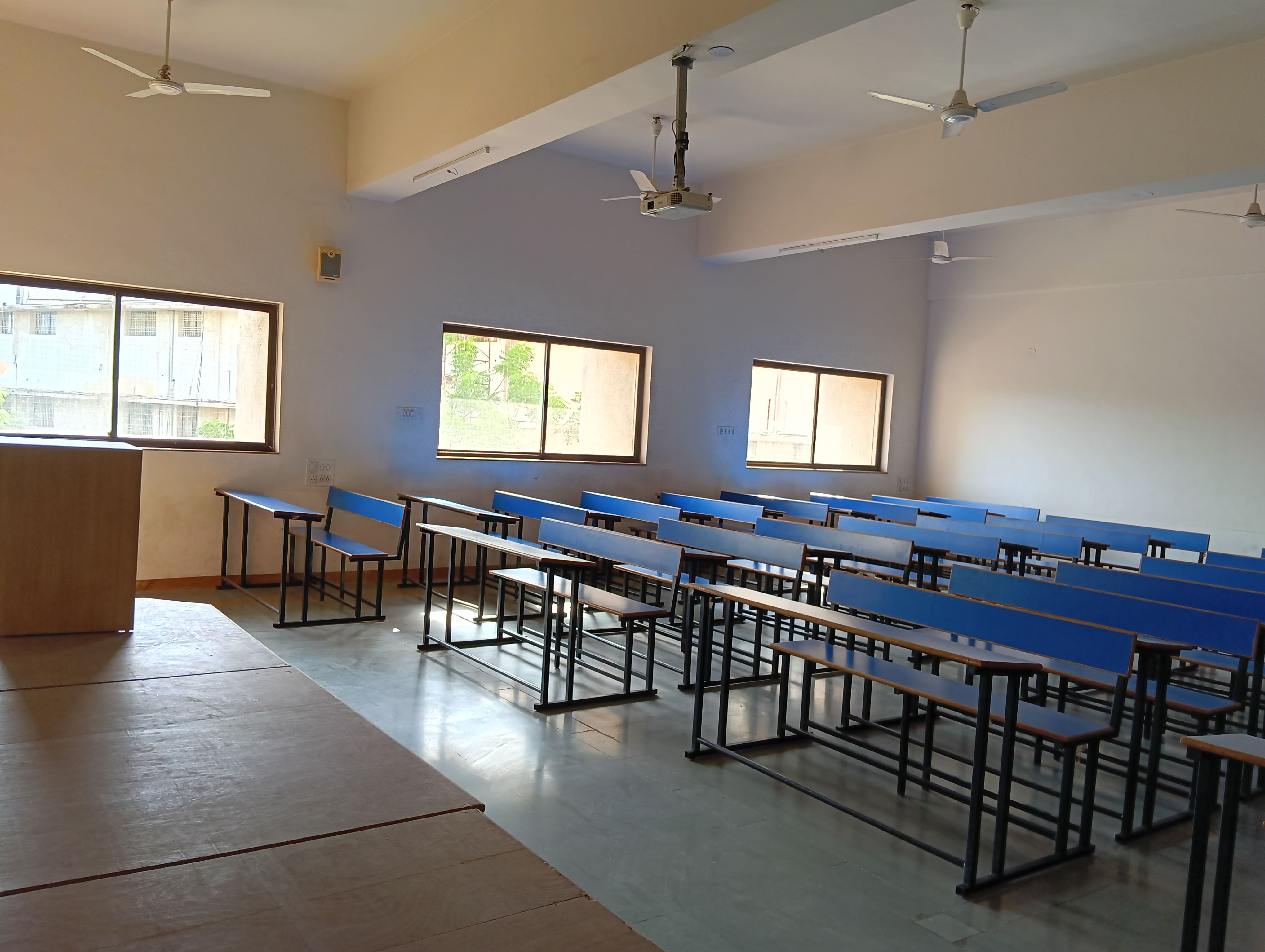
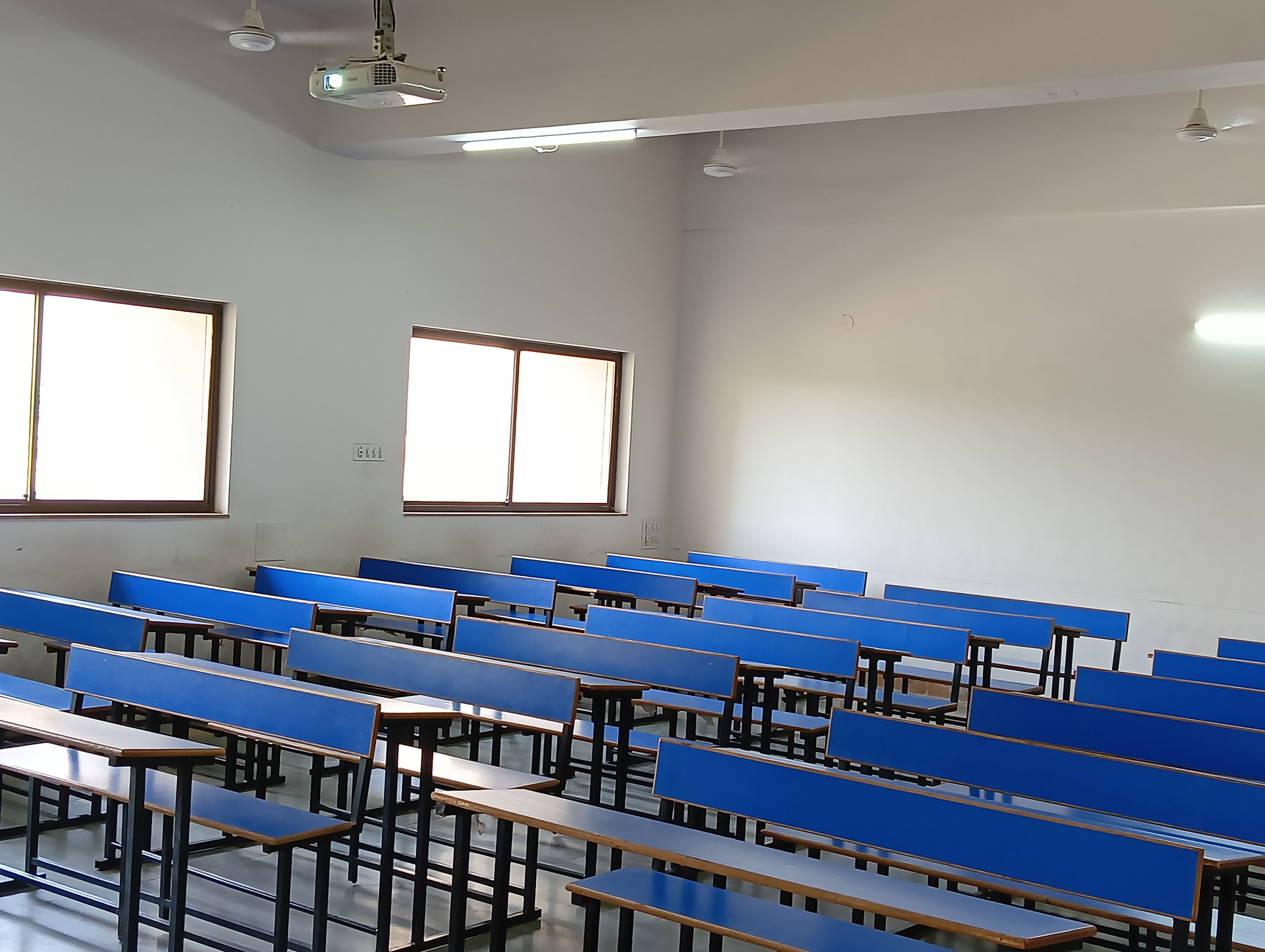
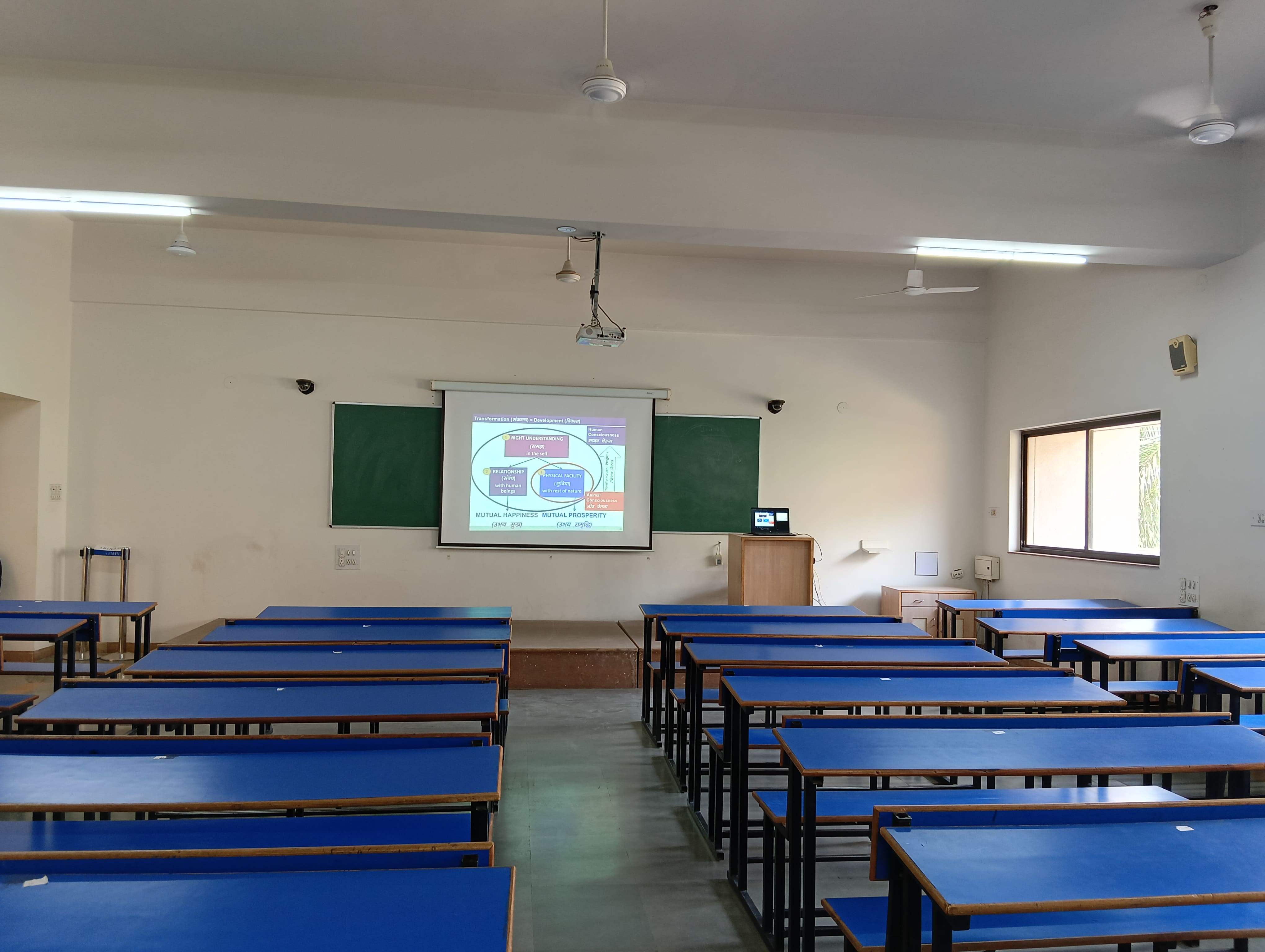
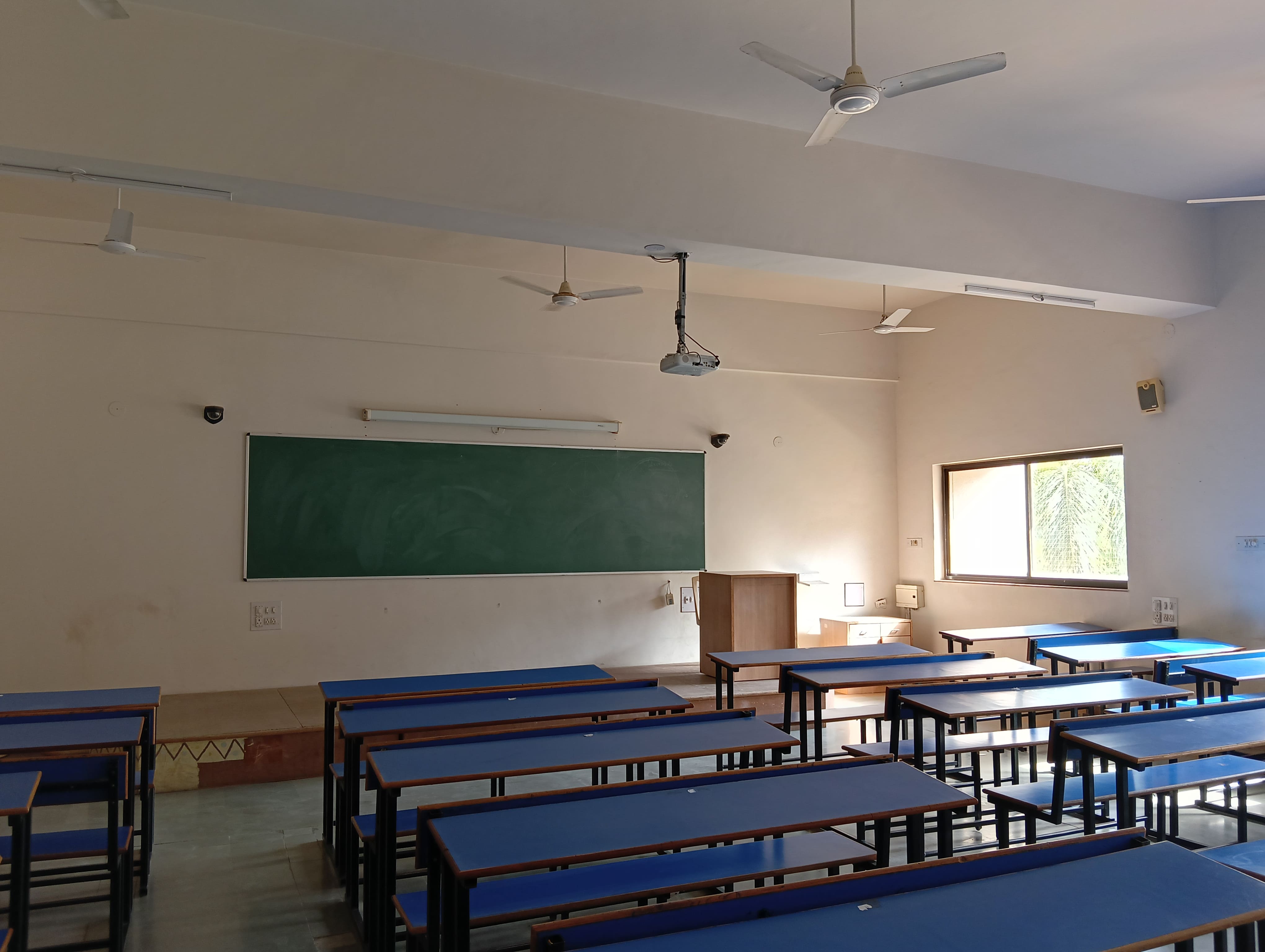
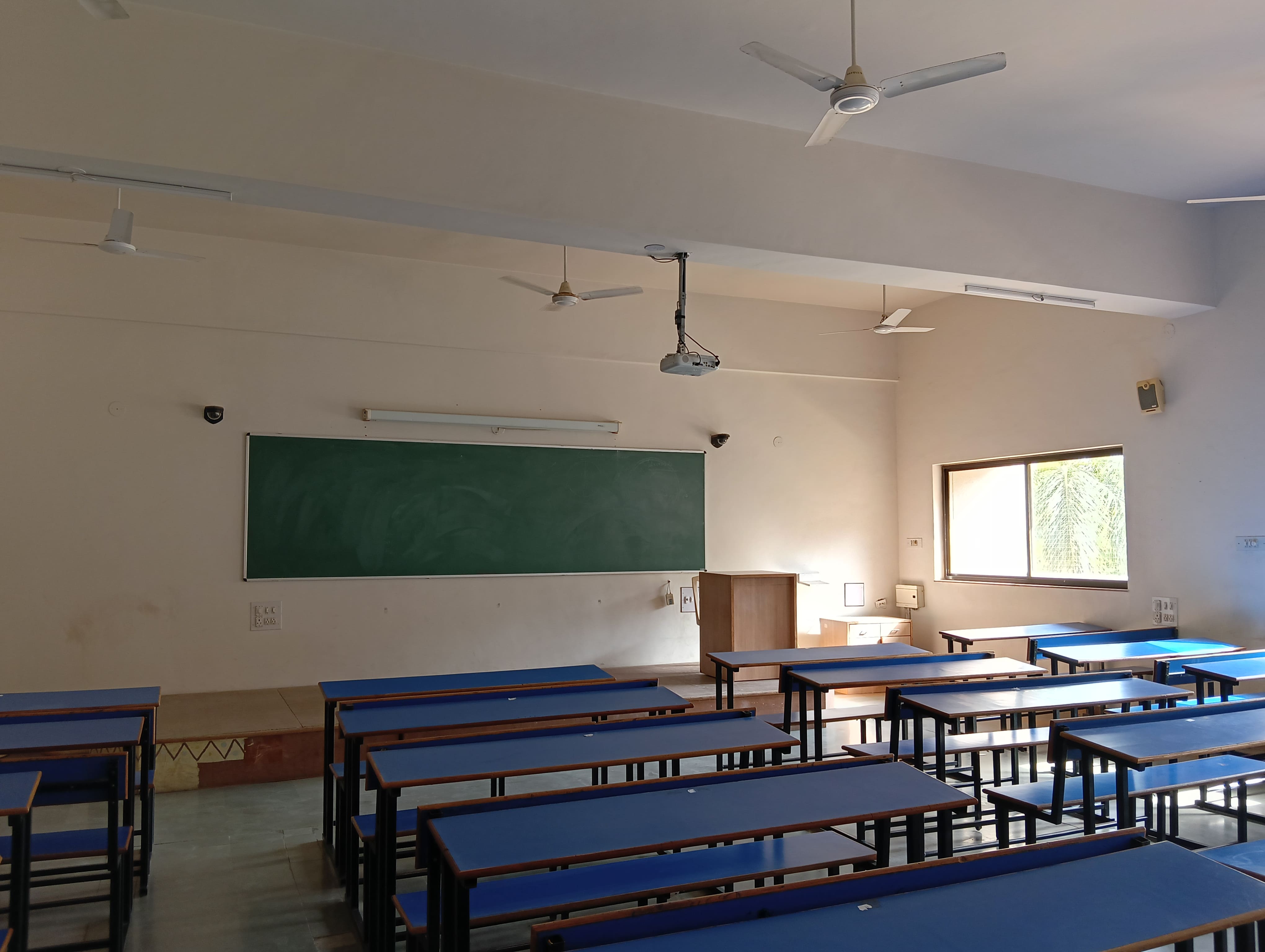
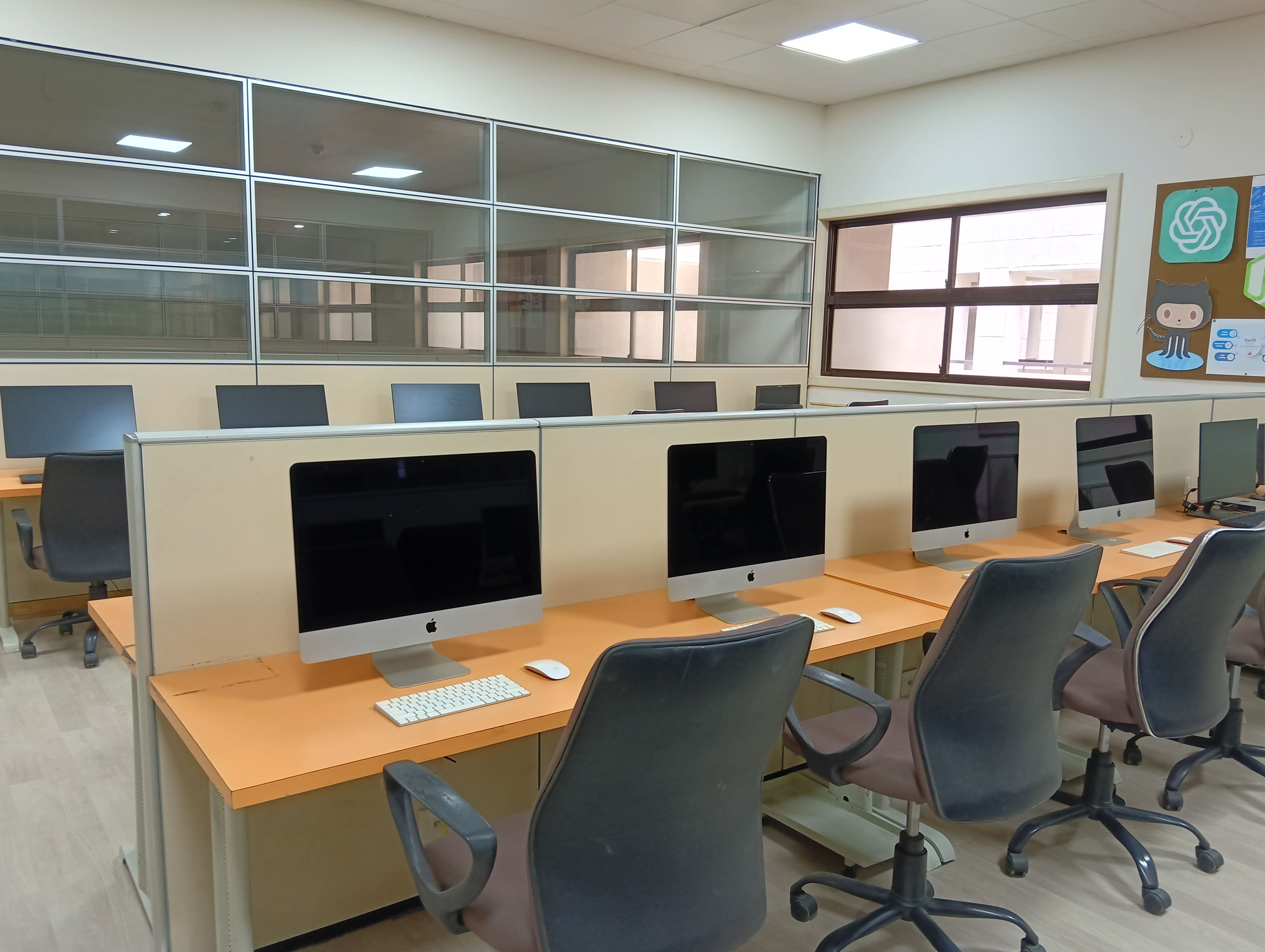
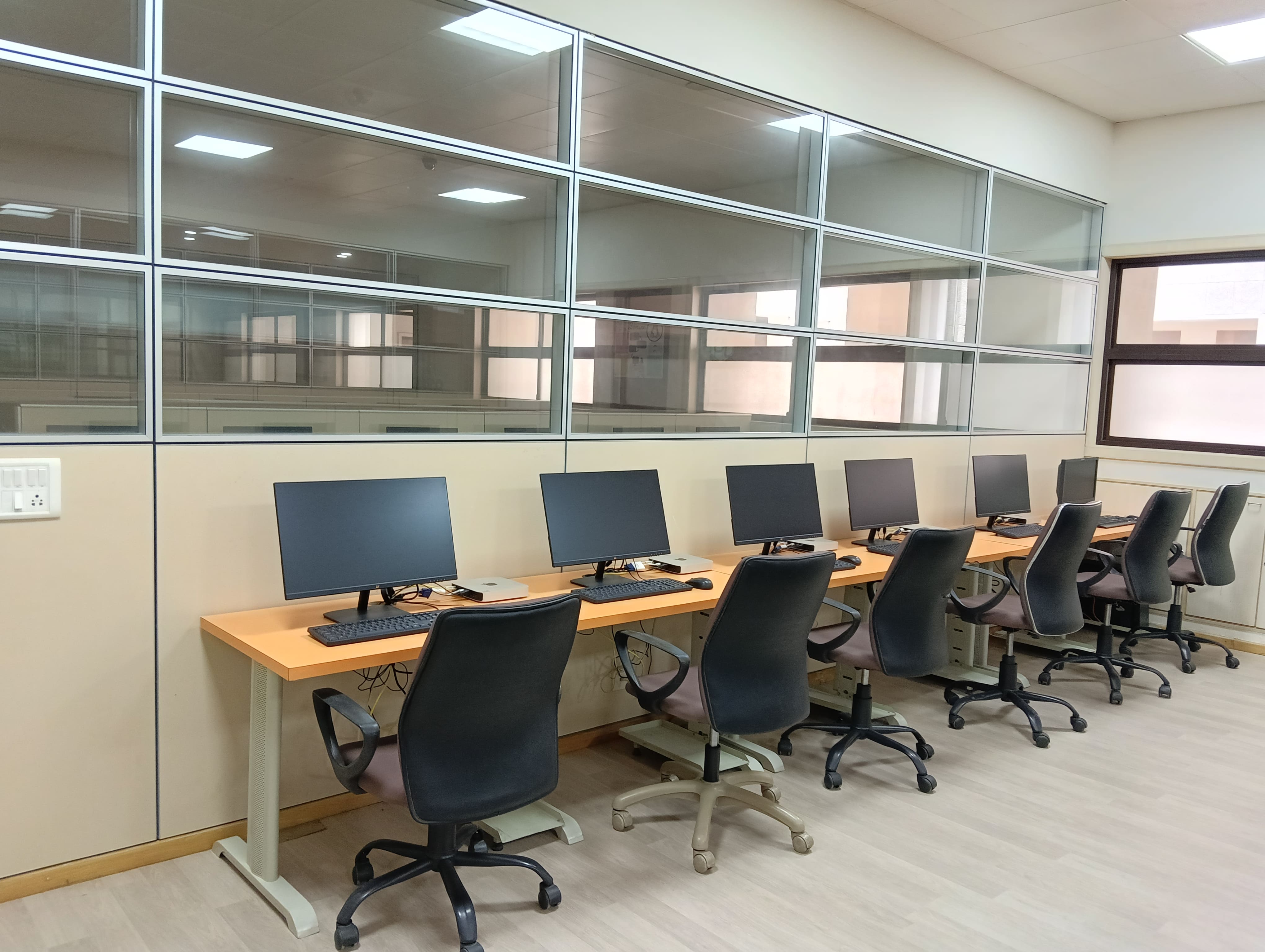
Placement
Achievements
| Sr. No | NAME OF STUDENT | ACHIEVEMENTS DETAILS | DETAILS |
| 1 | PATEL RIDDHAM | DEVANG MEHTA IT AWARDS TO TOPPERS OF IT DEPARTMENT | TECHNICAL |
| 2 | GUSANI SNEHAL | DEVANG MEHTA IT AWARDS TO TOPPERS OF IT DEPARTMENT | TECHNICAL |
| 3 | MAKWANA SHWETA | DEVANG MEHTA IT AWARDS TO TOPPERS OF IT DEPARTMENT | TECHNICAL |
| 4 | SANGHRAJKA HILONI | DEVANG MEHTA IT AWARDS TO TOPPERS OF IT DEPARTMENT | TECHNICAL |
| 5 | AAKASH NAGPAL | QUALIFIED IN ROUND-2 FOR NATIONAL CREATIVITY APTITUDE TEST | TECHNICAL |
| 6 | AASHKA JOSHI | QUALIFIED IN ROUND-2 FOR NATIONAL CREATIVITY APTITUDE TEST | TECHNICAL |
| 7 | RAWAL DHWANI | WINNER:6TH YOUTH FESTIVAL OF GTU 2016 CERTIFIACATE OF ACHIVEMENT IN CLASSICAL DANCE VENUE:SHRI LABHUBHAI TRIVEDI INSTITUTE OF ENGINEERING AND TECHNOLOGY | CULTURAL |
